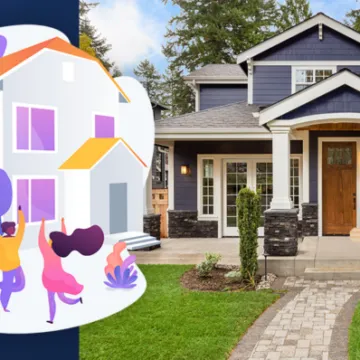Choosing between a used or new vehicle is a financial decision that needs consideration.
From depreciation to maintenance costs, take the time to consider the full implications of the decision.
Your financial picture is unique and deserves to be looked at carefully, to be sure you understand the option that works for you.
Ready to hit the road looking for a “new to you” vehicle? If so, it’s not just about the vehicle itself but about understanding and respecting your unique financial circumstances.
Opting for a used vehicle can be practical and potentially save you from the initial depreciation hit. On the other hand, investing in a new vehicle may represent a personal milestone or a necessity, symbolizing a commitment to reliability and advanced features.
Whatever your decision, it’s a reflection of your financial journey. Be kind to yourself, weigh the options empathetically, and choose the path that aligns with your present and future financial well-being. After all, the right choice is the one that resonates with your heart and your wallet alike. See the considerations below before you get on the road!
Is it better to buy a used car or go with a shiny new vehicle? Let’s compare the two options of buying a new or used car and give you some good information to make a well informed decision.
Buying New
Probably the biggest single advantage is the car itself.
Since it’s brand-new, it has never been driven by someone else. Possible abuse or failure on the part of a previous owner to have properly maintained the car are two things you don’t have to worry about.
New car warranty
Repairs can be expensive, but the warranty generally covers you during the first 3-5 years.
Pick and choose exactly what you want
It’s true that dealers would prefer that you to buy a car “from inventory” — choosing one that is sitting on their lot. But assuming the model you’re interested in is still being produced, you can opt to order it with everything you want— and nothing you don’t want.
More expensive
New cars cost more than used cars. A new car is at the very peak of its value. Even with rebates, discounts and negotiation, you will be paying top dollar. If it’s a just-launched/popular model, expect to pay full MSRP sticker. Also, consider the costs to insure the vehicle, which may be more than you anticipated.
Depreciation (losing value)
New cars depreciate (lose value) quickly. On average, the vehicle will lose 10-20 percent of their original sales price during the first year of ownership. That comes right out of your pocket and should be factored into your purchasing decision, particularly if you know you will be trading it in within five years or so.
Buying Used
You’ll pay less!
That’s probably the single biggest advantage to buying a used car. Even a slightly used car (such as a former lease car that’s only 2-3 years old) will cost considerably less than a brand-new version of the same make/model car.
Less depreciation
Yes, a used car will continue to lose value the older it gets and the more miles you clock. However, the year-to-year differential is almost always less with a used car. Where a brand-new car might be worth 30 percent less than you paid for it by the time two years have passed, your used car will typically lose only about 10-15 percent of its value over the same time period. After a certain point (after about 5-7 years) the value of a used vehicle stabilizes, with further declines in value amounting to an ever-lower percentage of the vehicle’s total worth.
Unknown quality
You don’t always know what you are getting when you buy a used car. Be careful when buying a used car. Who knows how it was treated by its previous owner(s)? It may have been in an accident, poorly maintained, or not serviced per the factory recommendations.
More frequent (and potentially costly) maintenance
A used car will almost always have more flaws, and will probably need more maintenance. No matter how gently you drive, no matter how rigorously you service it, a used car will not last as long as a brand-new car.And it will have small flaws such as paint chips, minor damage, tire wear, stains on the carpet, etc.
What Makes Sense for You?
There are a number of important factors to consider, so take your time in making a final decision.
Consider your budget, your driving habits, your family situation, and how important a new vehicle is to you. Some people take a great deal of pride in their vehicles. Others take a simpler approach and look at their car as a means to get to work and back, that’s about it. Maybe you are in the middle— you want a good, safe, reliable vehicle, at a fair price. Carefully consider your options and you’ll come to the right decision.
On the Road to Financial Wellness – Together
There are a number of important factors to consider, so take your time in making a final decision.
If you have a big purchase on the horizon, such as a new or used vehicle, a compassionate GreenPath financial counselor understands that everyone’s financial situation is unique, and there is no one-size-fits-all solution.
A counselor will take the time to listen to your individual circumstances, understand your current debt situation, to suggest options that align with both your short-term objectives and long-term financial dreams.
GreenPath’s guidance can help you navigate financial challenges and make informed decisions that contribute to your overall financial well-being.
GreenPath Financial Service
GreenPath, A Financial Resource
If you’re interested in building healthy financial habits, paying down debt, or saving for what matters most, take a look at these free financial tools.










